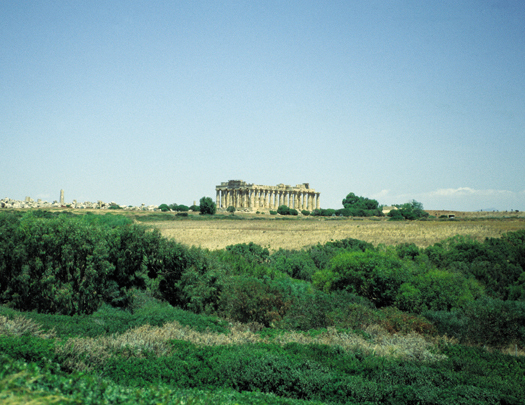Destinations: Punic Double Take
Romantic Greek temples overlook Phoenician homes at Selinunte, Sicily

Greek and Roman ruins are all over. But Punic ruins, especially residential complexes, are hard to find. Even at Carthage in north Africa, home of Phoenicians who created Punic civilization, residential areas are nowhere to be seen, so thoroughly did the Romans destroy them. (Remember Cato: Carthago delenda est; “Carthage must be destroyed.”) You have to travel 75 miles east of Carthage to a sleepy little coastal town called Kerkouane to find any substantial Punic residential remains see Hershel Shanks, Destinations, AO 02:04. So you will appreciate my surprise at a site in southwestern Sicily called Selinunte.
Selinunte is famous for its Greek temples—half a dozen or more. Today we are not even sure to whom they were dedicated, so they are designated simply by letters, A through G and sometimes O and Y. Most of the temples were built in the sixth century B.C. when Selinunte was a Greek “colony.” Indeed, this was an age of colonies. Even colonies had colonies. Selinunte was established in the late eighth century B.C. by Greek colonists who had already settled eastern Sicily (principally Syracuse). Greeks also colonized southern Italy, which became known as Magna Graecia. Indeed, some ancient sources include Sicily in Magna Graecia.
Already a library member? Log in here.
Institution user? Log in with your IP address.

